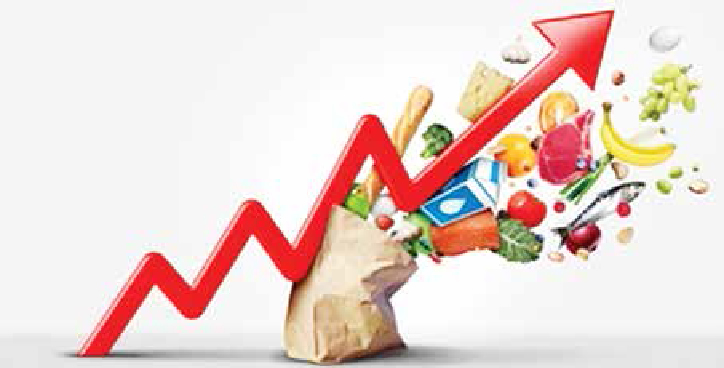Nigeria’s economy continues to grapple with rising inflation as the National Bureau of Statistics (NBS) revealed on Monday that the country’s headline inflation rate surged to a staggering 34.60% in November 2024. This marks a significant increase of 0.72 percentage points from the 33.88% recorded in October.
On a year-on-year basis, the inflation rate jumped 6.40 percentage points higher than the 28.20% recorded in November 2023, underscoring the persistent economic challenges faced by Nigerians.
The report highlighted an alarming rise in food inflation, which climbed to 39.93% in November, a sharp increase of 7.08 percentage points compared to the 32.84% recorded in the same month last year. Month-on-month, however, headline inflation showed a marginal decrease, coming in at 2.638% for November, slightly below October’s rate of 2.640%.
This slight reprieve in monthly inflation, though minor, indicates a slower pace in the overall price increases. Yet, the escalating cost of food remains a significant concern. According to the NBS, price hikes in key items such as yam, water yam, maize grains, rice, and vegetable oil contributed significantly to the spike in food inflation.
Read also: MOWCA, NiMET collaborate to boost West and Central Africa maritime safety
Breaking down the numbers further, the report noted that food inflation on a month-on-month basis reached 2.98% in November, a 0.05 percentage point increase from October’s rate of 2.94%. This increase was attributed to rising prices of staples like rice, yam flour, corn flour, and protein-rich items such as dried fish, goat meat, and fresh milk.
The average annual rate of food inflation for the 12 months ending November 2024 surged to 38.67%, a sharp jump of 11.58 percentage points from the 27.09% recorded in November 2023.
The NBS findings paint a dire picture of the rising cost of living in Nigeria. With key staples like bread, cereals, oils, and fats becoming increasingly expensive, households are facing mounting pressure to make ends meet. Economists warn that these inflationary trends could persist into the new year unless swift policy measures are enacted to stabilize prices and address the underlying economic challenges.






